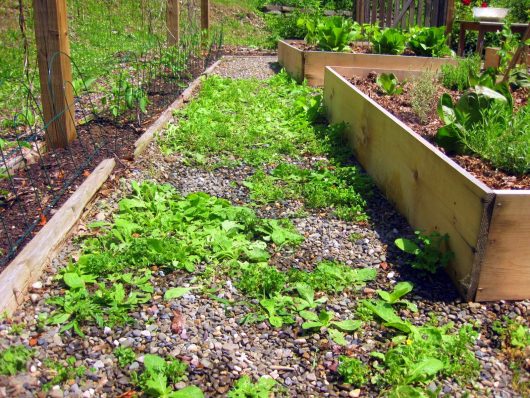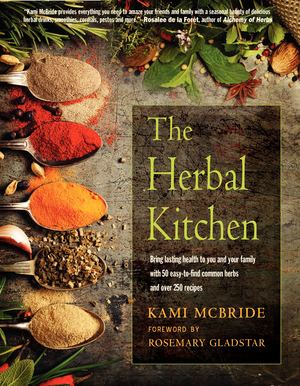
Ditch the Chemicals: Natural Cleaning Recipes From Your Homestead
The scent of spring is in the air, a gentle breeze carrying whispers of blooming flowers and freshly turned earth. But inside, that crisp, clean smell can often be masked by the harsh aroma of chemical cleaners. We’ve all been there, squinting as we spray, wondering what exactly we’re subjecting ourselves and our families to. The truth is, many conventional cleaning products are laden with harsh chemicals, potential allergens, and ingredients that aren't exactly kind to our planet. If you, like me, are craving a more natural, wholesome approach to homekeeping, you're in the right place.
Here at Better Homes and Harvests, we champion the self-sufficient lifestyle, and that extends to what we use to clean our homes. Imagine a cleaning routine powered by ingredients you can easily find on your own homestead or at your local natural grocer. Ingredients that are not only effective but also gentle on your skin, safe for your family, and kind to the environment.
In this post, you'll discover how to create a sparkling clean and healthy home using readily available, natural ingredients. We’ll explore essential ingredients for your homestead cleaning pantry, share easy-to-follow DIY cleaning recipes, dive into seasonal cleaning strategies, and offer practical tips for sustainable cleaning practices. Get ready to ditch the chemicals and embrace the power of nature in your cleaning routine!

The Homestead Cleaning Pantry: Essential Ingredients
The foundation of any successful endeavor lies in having the right tools. When it comes to natural cleaning, this means stocking your pantry with a few key ingredients that can be combined in countless ways. These staples are readily available, affordable, and incredibly versatile.

Vinegar (White & Apple Cider): This tangy liquid is a powerhouse when it comes to cleaning. White vinegar is a fantastic disinfectant, thanks to its acetic acid content. It’s effective against many household germs and bacteria. Apple cider vinegar, while gentler, offers similar benefits and can be used for less intense cleaning tasks. Dilute vinegar with water for various surfaces, but be mindful of using it on natural stone (like marble) as it can etch the surface. The smell can be strong, so add a few drops of your favorite essential oil to neutralize the scent.
- Takeaway: Affordable and effective disinfectant for general cleaning.
Baking Soda: A gentle abrasive and a fantastic deodorizer, baking soda is a must-have in any natural cleaning arsenal. Its slightly alkaline properties help to break down grease and grime, making it ideal for scrubbing sinks, ovens, and tiles. Sprinkle it in your fridge to absorb odors or use it as a carpet deodorizer before vacuuming.
- Takeaway: Gentle abrasive and deodorizer for various cleaning tasks.
Castile Soap: Made from olive oil (or other vegetable oils), castile soap is a gentle yet effective cleanser. It's available in liquid and bar forms, making it incredibly versatile. Use it as a base for dish soap, hand soap, or all-purpose cleaner. Just be careful not to mix it directly with vinegar, as this can cause it to curdle and lose its cleaning power.
- Takeaway: Versatile base for many cleaning recipes.
Essential Oils: Beyond their delightful fragrances, many essential oils possess antibacterial, antiviral, and antifungal properties. Lavender, lemon, tea tree, and eucalyptus are excellent choices for cleaning. Add a few drops to your cleaning solutions for a boost of cleaning power and a lovely scent. Always dilute essential oils properly before use, and be mindful of using them around pets and children.
- Takeaway: Adds fragrance and disinfecting power.
Lemons/Citrus Peels: The citric acid in lemons makes them a natural cleaning agent and deodorizer. Rub a lemon half on cutting boards to disinfect them or use lemon juice to remove hard water stains. Save citrus peels to infuse vinegar for a citrus-scented cleaner or to freshen up your garbage disposal.
- Takeaway: Adds fresh scent and extra cleaning power.
Herbs (Dried & Fresh): Infuse your cleaning solutions with herbs like rosemary, thyme, and lavender for added scent and potential benefits. A simple herbal infusion can add a touch of natural fragrance to your home without the use of synthetic chemicals. Bundle fresh herbs and hang them in your shower for an aromatherapy experience.
- Takeaway: Adds a natural, subtle scent and potential benefits.
A well-stocked natural cleaning pantry starts with a few basic, inexpensive ingredients that can be combined to create a wide range of cleaning solutions.
DIY Cleaning Recipes for the Homestead
Now that you have your essential ingredients, let's put them to work! These DIY cleaning recipes are simple, effective, and customizable to your preferences.

All-Purpose Cleaner:
Recipe: 1 cup white vinegar, 2 cups water, 10-20 drops essential oils (lemon, lavender, or tea tree).
Instructions: Combine all ingredients in a spray bottle and shake well before each use.
Uses: Countertops, sinks, floors (test on an inconspicuous area first), and general surface cleaning.
Takeaway: A versatile cleaner for most surfaces.
Glass Cleaner:
Recipe: 1/4 cup white vinegar, 2 cups water, 1 drop castile soap (optional).
Instructions: Combine all ingredients in a spray bottle and shake gently.
Uses: Windows, mirrors, and glass surfaces. Wipe with a microfiber cloth for a streak-free shine.
Takeaway: Effective, non-toxic window cleaner.
Toilet Bowl Cleaner:
Recipe: 1/2 cup baking soda, 1 cup white vinegar, 5-10 drops essential oils (tea tree or eucalyptus).
Instructions: Sprinkle baking soda into the toilet bowl, then pour vinegar over it. Let it fizz for 15-20 minutes, then scrub with a toilet brush and flush.
Takeaway: Natural way to clean and deodorize the toilet.
Scrubbing Paste:
Recipe: Baking soda and water or castile soap (mix to form a paste).
Instructions: Mix baking soda with water or castile soap until you create a thick paste.
Uses: Grime, grease, and stains on sinks, ovens, and tiles. Apply the paste, let it sit for a few minutes, then scrub and rinse.
Takeaway: Gentle abrasive for tough stains.
Wood Polish:
Recipe: 1/4 cup olive oil, 1/4 cup white vinegar, 5-10 drops essential oil (lemon or orange).
Instructions: Combine all ingredients in a spray bottle. Apply sparingly to wood furniture with a soft cloth and buff to a shine. Always test on an inconspicuous area first.
Takeaway: Nourishes and shines wood surfaces.
These simple recipes are easy to adapt to your needs and preferences, and they utilize ingredients you likely already have on hand. Feel free to experiment with different essential oil blends to find your favorite scent combinations!
Seasonal Cleaning with Homestead Bounty
The beauty of the homesteading lifestyle is its connection to the seasons. You can harness the power of each season's bounty to enhance your cleaning routine.

Spring Cleaning with Citrus Infusion: As the days grow longer, infuse white vinegar with citrus peels (orange, lemon, grapefruit) for a fresh-smelling spring cleaner. Simply place the peels in a jar, cover them with vinegar, and let them steep for a few weeks. Strain the vinegar and use it in your all-purpose cleaner. Consider using spring herbs like rosemary and lavender for infusions as well.
- Takeaway: Harness the power of spring scents.
Summer Pest Control with Herbs: Keep summer pests at bay with the power of herbs. Plant herbs like mint, basil, and lavender around your home to repel insects. Make herbal sachets and place them in closets and drawers to keep moths away from your clothes.
- Takeaway: Natural insect repellent for summer months.
Fall Scented Cleaning with Spices: Embrace the cozy scents of fall by adding cinnamon, cloves, and other warming spices to your cleaning solutions. Simmer cinnamon sticks and orange peels in a pot of water on the stove for a natural air freshener.
- Takeaway: Warm, inviting scents for fall cleaning.
Winter Disinfecting with Evergreen: During the winter months, use pine needles or evergreen clippings to make a disinfecting spray or infuse vinegar. The resinous properties of evergreens have antibacterial and antiviral benefits, making them ideal for combating winter germs.
- Takeaway: Harness the power of pine for winter disinfection.
Each season offers unique opportunities to incorporate natural elements into your cleaning routine, making it a truly holistic and enjoyable experience.
Sustainable Cleaning Practices for the Homestead
Beyond the ingredients themselves, sustainable cleaning practices are essential for minimizing your environmental impact.
Reusable Cleaning Cloths: Ditch the paper towels and embrace reusable cleaning cloths. Microfiber cloths, old t-shirts, and even repurposed towels make excellent cleaning tools. Simply wash and reuse them, reducing waste and saving money.
DIY Dusters: Old socks placed over hands make great dusters.
- Takeaway: Reduce waste and save money on cleaning supplies.
Refillable Spray Bottles: Invest in durable, reusable spray bottles and containers for storing your homemade cleaners. Avoid single-use plastic bottles and opt for glass or sturdy plastic alternatives.
Composting Cleaning Waste: Compost natural cleaning waste such as citrus peels, coffee grounds, and tea bags. These items can enrich your compost pile and reduce landfill waste.
Mindful Packaging: When purchasing cleaning ingredients, choose options with minimal packaging or buy in bulk to reduce waste. Support companies that prioritize sustainable packaging practices.
- Takeaway: Minimize your environmental impact through conscious choices.
By embracing sustainable cleaning practices, you can create a healthier home and a healthier planet.
A Clean Home, A Clear Conscience
Transitioning to natural cleaning is a journey, not a destination. Start with one or two recipes and gradually replace your conventional cleaners with homemade alternatives. Experiment with different scents and ingredients to find what works best for you and your family. Remember that every small step you take towards natural cleaning makes a difference.
As spring unfolds, now is a perfect time to infuse vinegar with citrus peels, capturing the essence of the season and bringing a touch of sunshine to your cleaning routine!
What are your favorite tips for natural cleaning? Share them in the comments below! We'd love to hear from you.